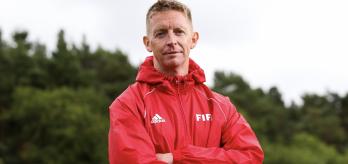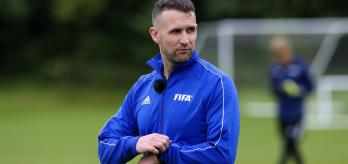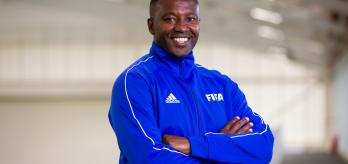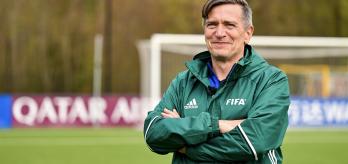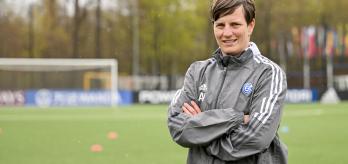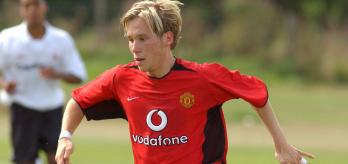Part 1 - Michael's coaching journey
00:07
Michael's coaching inspirations
Michael's main inspiration is Chris Ramsey MBE, current Head of Coaching at Queen Park Rangers. Ramsey has developed countless players and coaches during his time. For this reason, and his motivational character, Michael sees him as his biggest inspiration.
00:44
Coaching career and role at the English FA
With the encouragement of the director of football at the time, Sven-Göran Eriksson, Michael made his first steps into coaching whilst he was still a player at Notts County. After a series of youth coach positions at clubs throughout the UK and a spell as head coach of Guyana's senior national team, Michael joined the English FA as assistant coach to Aidy Boothroyd's U-21s in 2019. He holds this role to the present day.
01:56
Transitioning from player to coach
To help transition from player to coach, Michael has always furthered his education alongside football. Two master's degrees, a diploma, and an accreditation in governance exemplify his willingness to step outside of his comfort zone to acquire new knowledge and skills that can be transferred to coaching. Nevertheless, Michael still stresses the importance of learning from experiences made during his football career, as they strongly contribute to his leadership style.
03:18
The benefits of coaching in different countries
Working in different countries has enriched Michael's coaching career. Each country raises different challenges and demands the need to adapt methodologies. In addition, Michael has learnt unique skills from the different cultures he has been a part of.
Part 2 - Speed in the modern game
00:04
The game's speed-orientated development
Speed is at the core of how the game is evolving and coaches will be demanding one-touch play as a consequence. With this emphasis on one-touch and two-touch play, skills such as scanning, receiving and positioning are becoming increasingly essential.
01:16
Speed and player development
Ideally, players will be developed so that, by the time they are transitioning from junior to senior, they have the technical level to give them freedom and enjoyment to play. Because of the importance of speed, developmental processes will emphasise skills such as one-touch play, weight of pass and vision.
02:21
The challenges of the speed-orientated shift
Mastering the one-touch play requires a wide-ranging support staff. It also changes the nature of a training session, as different drills are required to develop of the new playing style. At a more fundamental level, the technical demands of one-touch play are greater than a playing style without a touch limit, implying players will make more mistakes in the exercises that look to improve a team's ability to play with a single touch. Creating an environment where players can make mistakes has become a necessity in the game's speed-orientated shift.
Part 3 - Environment and values
00:05
Advice for young coaches
For Michael, when establishing a learning environment, coaches must understand that players have different ways they obtain knowledge. Accommodating all types of learning is essential to bring out the best of the entire squad. As a young coach, gaining experience by being out on the grass is vital for improvement.
00:51
Key issues for player development
An elite environment and culture need to allow players to make mistakes. Without this, players do not get the opportunity to learn from their mistakes, which restricts development.
01:37
What players need
For Michael, values which are important in all walks of life, not just football, are the secret ingredients to succeed as a football player. Respect, humility, resilience and work ethic all feed into a character that is optimal for development. For example, being humble and acknowledging the need to be coached is an integral value for young players to have.
02:47
Learning environment
To establish a positive and successful learning environment the individuals within it have to be connected. For a coach, emotional intelligence is vital to help facilitate this connectedness, as it allows a coach to understand a player's background. The environment should be one of hard work but also a place where people are not afraid of making mistakes.
Part 4 - Tips for players and coaches
00:05
Top tips for players and coaches
Players must have a love of the game. A player with a desire coming from within will subtly put in more hours than an unmotivated team-mate.
Coaches need to be authentic. They must be comfortable being themselves around others regardless of the environment. A coach also needs to be able to connect with players on a human level. By understanding people in this way, the coach can get the most out of them on the pitch.
The way to understand players is to ... understand the backgrounds of players















